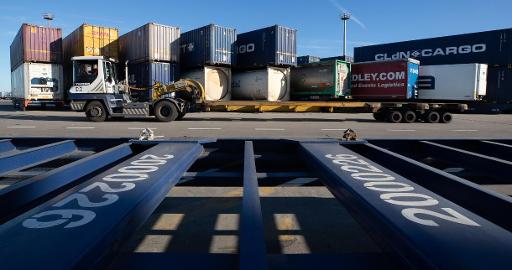The Flemish port of Zeebrugge is confident it is ready for the possible adverse situations that could occur with a no-deal Brexit, mayor Dirk De fauw has told the Bruges City Council.
In Zeebrugge, about 200 police officers are ready to solve the problems related to the implementation of Brexit, while 1,700 new truck spaces have been created in the port.
On average the port receives between 5,000 and 7,000 trucks a day, half of which are bound for the United Kingdom. With the approach of Brexit, with or without a deal, a lot of upset is expected. This is why the port and the various authorities have drawn up an action plan.
"This plan has been ready for one year, since the previous Brexit deadline. So we are certainly ready to face the crowds and traffic jams," De fauw assured.
Companies that regularly have to pass through Zeebrugge are, according to De fauw, very well prepared from the point of view of having the necessary documents. Problems will arise, however, with people who use the area less often and are not prepared.
Such checks, however, will not take days - as some have feared - but could take hours, one way or another. "Anyone who cannot get their documents in order within a few hours will be dismissed. It will not be possible to park at the port for days," explained the mayor.
Alongside the additional space, sanitary facilities, lighting and security will be provided and ensured and the civil protection will take care of the supply. Two hundred officers will patrol the port, including 50 from the Bruges police.
The biggest potential problems in West Flanders, however, are not expected at the port of Zeebrugge, but at the French border.
"The traffic jams in Calais and Dunkirk may lead to traffic jams in our region, for example in Furnes. A national plan has been developed for this purpose to divert trucks to, among others, the airports of Koksijde or Ursel. The Heysel airport in Brussels and the Flanders expo parking lot in Ghent are planned as additional parking lots," De fauw said.
The Brussels Times

